Have you ever thought that every time you enter your credit card details online for shopping, share your medical history with a hospital, or even just post a photo on social media, you’re putting your data out there. You are bringing people to your attention. Yes, you are making people access your information.
But wait a minute, does that mean we should stop using all this and start living in the stone age again, just with the fear of losing our information and being a victim of being scammed. Well not really!! We have online privacy laws that cover situations like these. Laws that protect you from all the scams and fraud being committed on the internet.
True Meaning Of Privacy
Privacy means ensuring the data of the individual is safe and secure. That nobody else has access to the data and personal information of the individual, and every bit of information, data, social media accounts shared are under the laws of protection. Using the VPN for privacy ensures that every single piece of information is secured and safe.
Privacy also refers to the following
- Deciding what information to share and with whom.
- Determining how personal data is collected, used, and distributed.
- The ability to keep certain aspects of one’s life confidential.
Online Privacy Laws
Online privacy laws are regulations that protect individuals’ personal data and privacy online. They provide guidelines on how personal information should be collected, used, and stored by organizations. It gives a sense of security and freedom of action, and moreover, it gives the user the authority to access the information she or he might be sharing on the digital platforms or on the social media.
In an era where our lives are increasingly intertwined with the digital world, online privacy laws have become paramount. These laws serve as the bedrock for individual freedom, security, and autonomy in the vast landscape of the internet.
By establishing clear guidelines and protections, privacy laws empower users to navigate the online world with confidence, knowing their rights and personal information are safeguarded.
What is Internet Law?
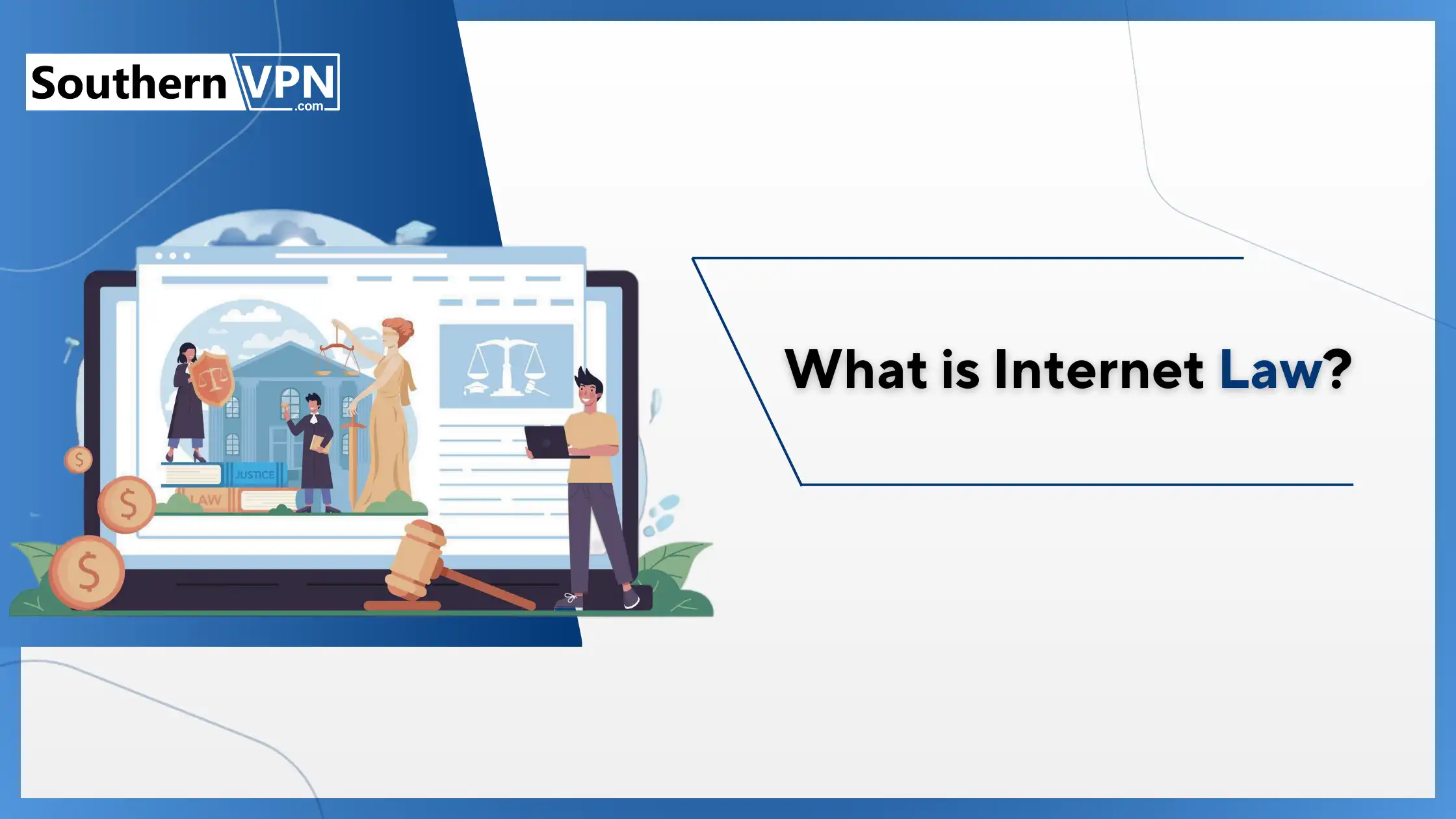
As the internet evolves and continues to work in different areas in the world, it is hard to keep up with the data and security at the same time. Hence it is very important for the legal laws to work on to make people aware of the fact that laws and legal frameworks go hand in hand.
By providing a framework for transparency, consent, and user control, these laws empower individuals to make informed choices about their online presence. They create a sense of security that encourages digital participation while respecting personal boundaries.
You are regularly being exposed to the world by the data over and over again. Banks, physical addresses, phone numbers they all have a lot of access to being exposed and can become subject for the scammers and the frauds.
Need of Online Privacy Laws
Online privacy laws were crucial as its clearly mentioned by Gary Kovacs,
“Privacy is not an option, and it shouldn’t be the price we accept for just getting on the Internet.”
Online privacy was a need of the hour. As lots of data was being shared on internet and lots of people were being active on internet the world was rapidly reaching to the heights where internet was being the source of using to connect to people and their fundamental sentiment that are close to their hearts and were very authentic.
Online privacy laws are important because they protect individuals from scams, fraud, and unauthorized use of their personal data. They ensure that personal information is handled securely and give users control over their data.
Ensurance of Trust
Trust is hard to build and once built, hard to maintain. These data privacy laws ensure the trust that one individual has put into the organisations and the digital world is ensured and will be protected.
Misuse of the Data
Online privacy laws ensure that this data is protected, keeping it out of the hands of people who might misuse it. There are a lot of scammers and people who are ready to misuse the data and exploit information in one way or another.
Comfortable Sharing
In such situations one such person that when privacy rules and regulations are maintained and comfortable in sharing the information online without the fear of being scammed or the frauds that are happening on a daily basis.
Accountability
These laws make sure that the organisations are accountable for all the data reports and data privacy rules for making each of the user and client comfortable in using the internet and sharing the information world widely.
Insider knowledge:
“Your accountability will make the organisation more vigilant”
Key Concepts of Online Data Protection Laws
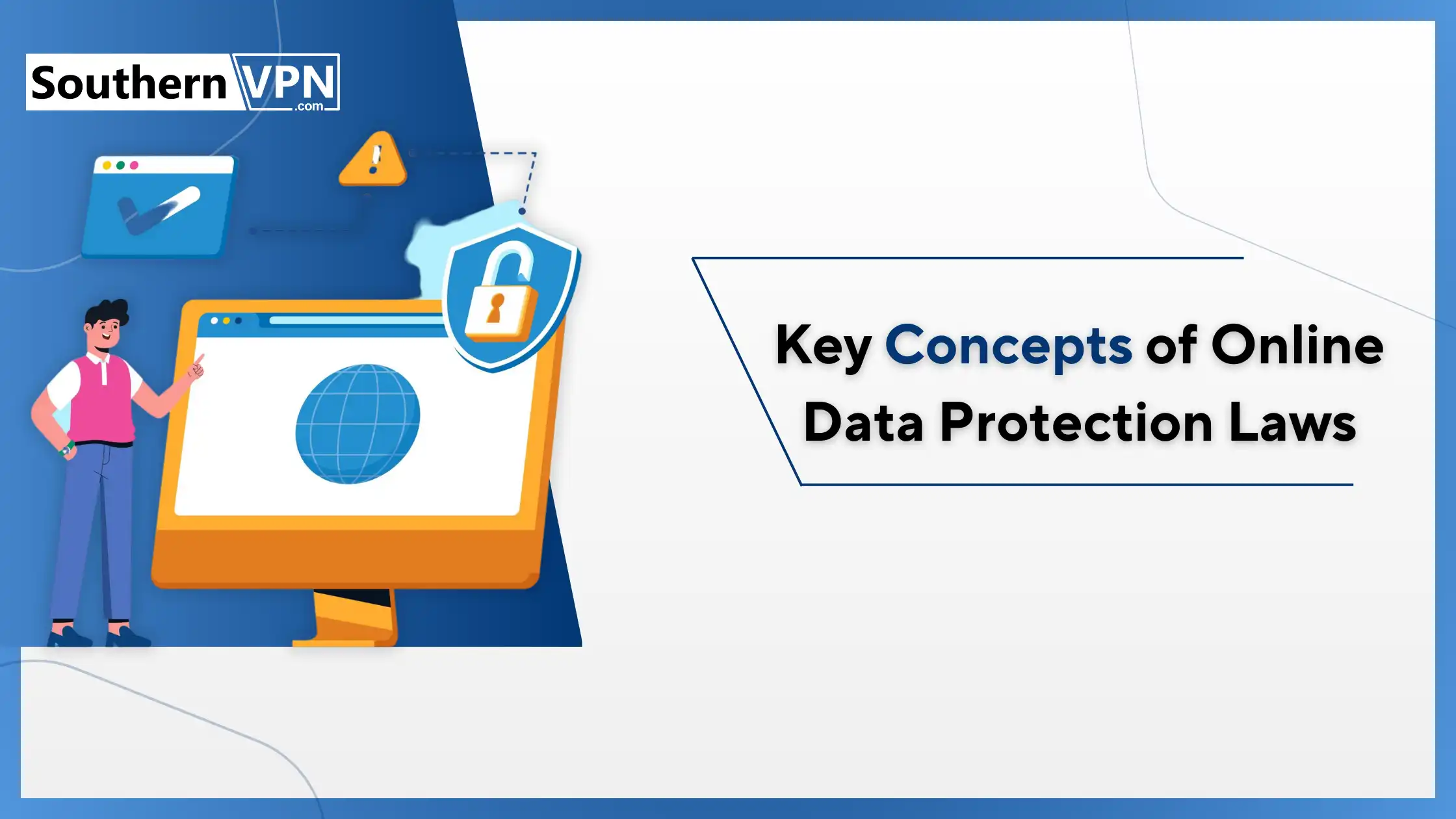
The key principles of data protection laws include data minimization, storage limitation, accountability, transparency, and user control. These principles ensure that only necessary data is collected, data is not kept longer than needed, and organizations are responsible for protecting personal information.

- Lightning-fast speeds to browse without lag
- Servers in 105+ countries around the globe
- Military-grade security to stay safe online
- Try it risk-free with its money-back guarantee
- Native apps for all major devices
Data Minimization
This principle means that companies and organisations should only collect the data they really need. No more, no less. This minimises the risk of your data being misused.
Keep It Short
It is well said to keep the data short and listed so that the companies might not get the data that they can exploit or use it another way to commit the fraud.
Companies to Keep an Eye On
Companies and institutions should ensure they are able to show that they’re following these rules. This might involve regular audits and assessments for the actions they take every month and yearly.
Storage Limitation
Your data shouldn’t be kept longer than necessary. Once it is used it should be deleted and no longer be accessed to any person or any individual of the firm or organisation.
How Online Privacy Laws Differ Around The World
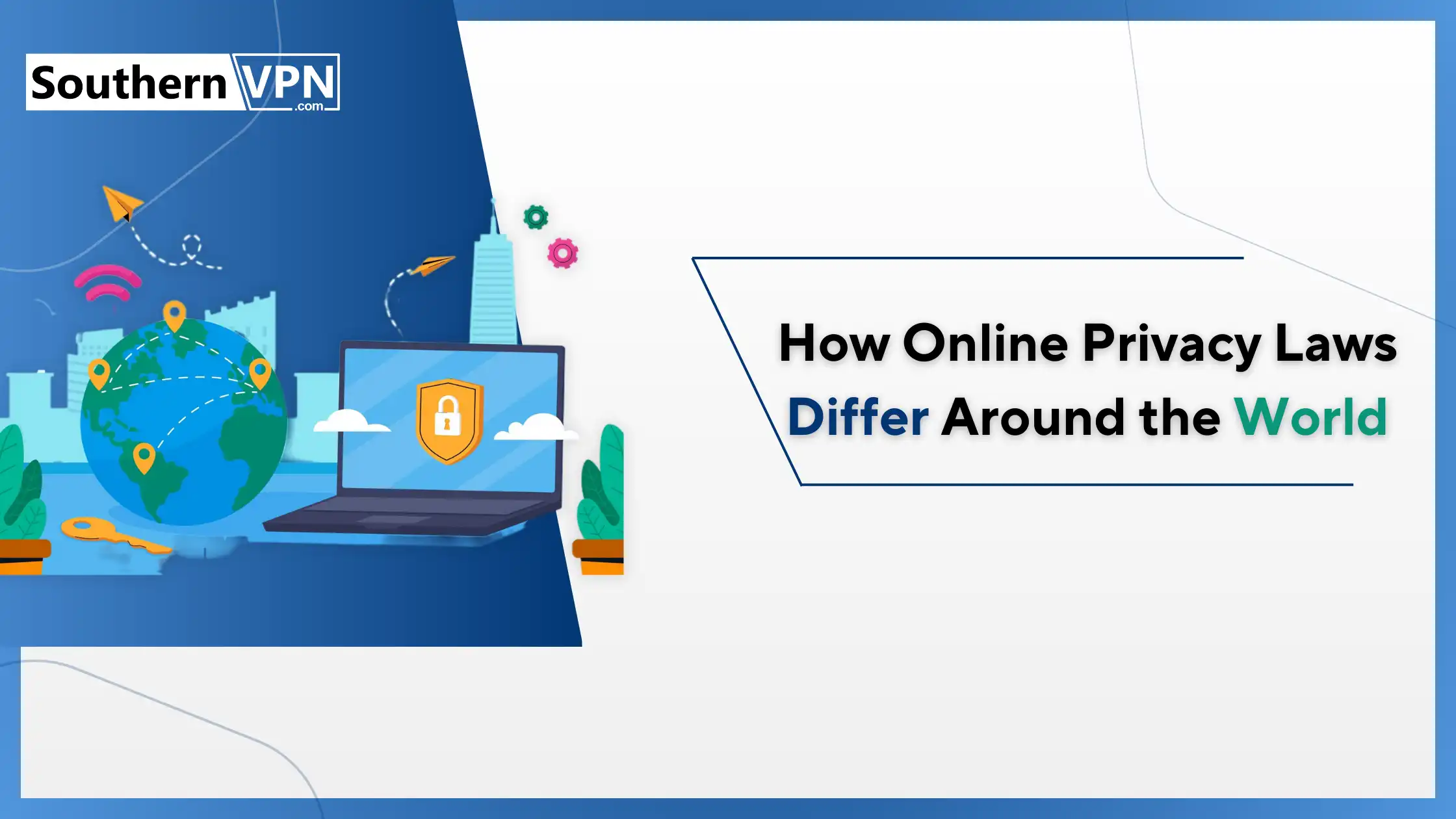
To make sure the privacy laws of every single state and region have different laws and legal framework to ensure the credibility of the data.
“Civilization is the progress toward a society of privacy”
This might help the citizens of the particular region to make sure that everyone can safely surf the internet under the established Internet privacy regulations.
The laws that are made in the countries around the world are pretty much the same and wholesome, yet they differ from region to region. Although it might take some time, it also is necessary to understand the key concept behind everytime we use in different areas of the world their rules and regulations.
Online privacy laws vary globally. For example, the EU has the GDPR, which is comprehensive and applies to any company handling EU citizens’ data. The US has sector-specific laws like the CCPA in California. Canada has PIPEDA, while countries in Asia like Japan and South Korea have their own robust privacy laws. Australia follows the Privacy Act 1988 and APPs.
European Union (EU)
The European Union has one of the most inclusive privacy laws in the world. It applies to any company that is handling the personal data of EU citizens, no matter where the company is based or in what part of the country it is operating. GDPR is all about consent, user rights, and heavy penalties for the one scams the data and does not provide the correct information on the internet and encrypts the data.
United States
In the US, there isn’t a single, overarching privacy law. Instead, it is well known that there are “different laws for different sectors”. Some states, like California, have their own laws, such as the California Consumer Privacy Act (CCPA), which gives residents more control over their personal information than any other state that is working and operating with such data.
Canada
Canada’s privacy law is called PIPEDA (Personal Information Protection and Electronic Documents Act). It emphasises meaningful consent and strong protections for personal data and information. In such cases the users in Canada are more likely to use the internet without any fear of loss of data or being the data misused anywhere in the world.
Asia
Countries like Japan and South Korea have comprehensive privacy laws. Japan’s APPI (Act on the Protection of Personal Information) and South Korea’s PIPA (Personal Information Protection Act) are designed to regulate data handling practices and protect user rights.
Australia
In Australia, the Privacy Act 1988 and the Australian Privacy Principles (APPs) govern data privacy. These laws set out how personal information should be managed, including guidelines for cross-border data transfers.
Some Overview of Key Privacy Laws Worldwide
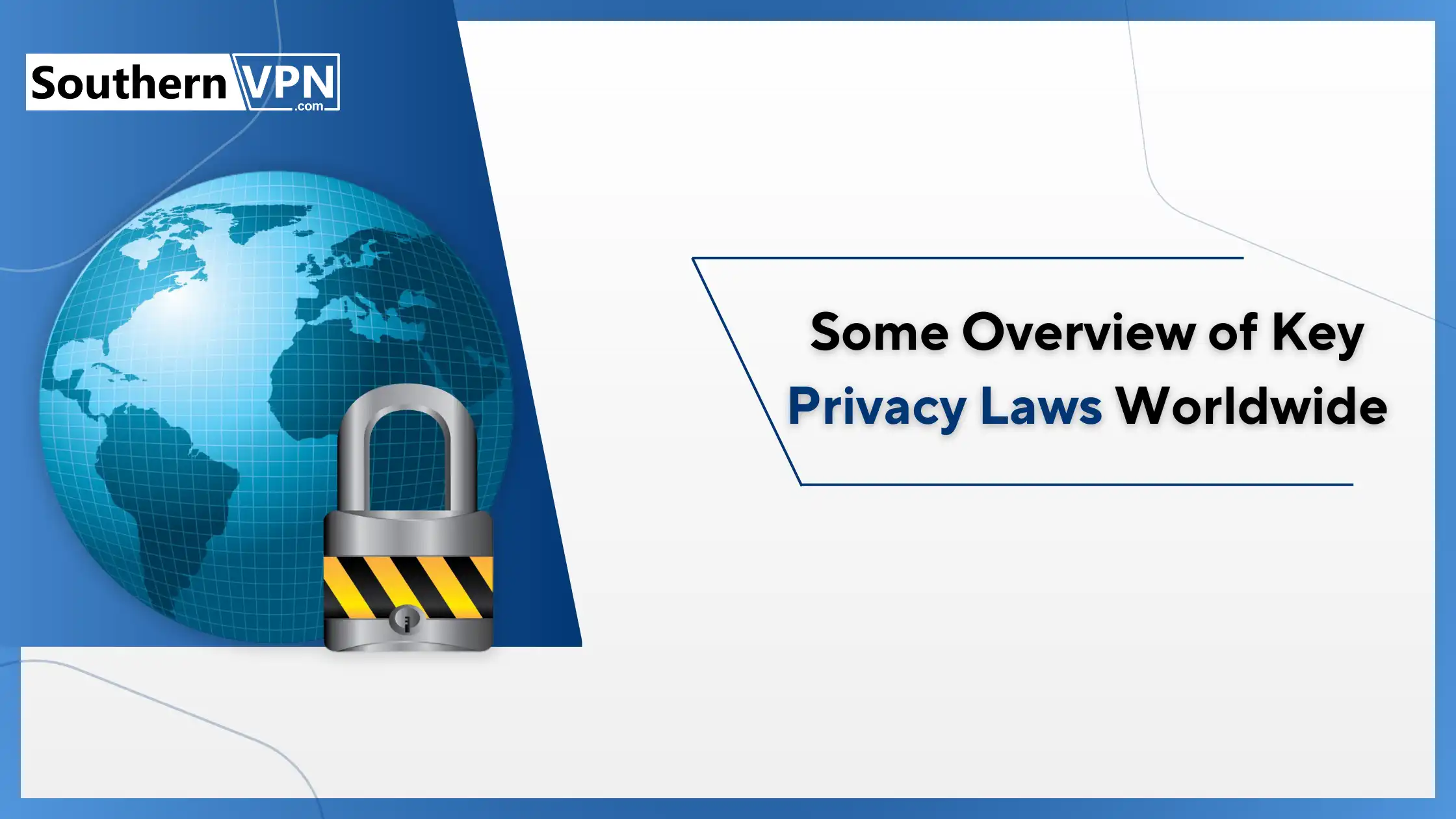
Some of the laws that are popular among the world and can also acta s a preamble for the future policies are discussed under the section comprehensively;
General Data Protection Regulation
It came into action in the year 2018. It is a legal framework that sets guidelines for collecting and processing personal information from individuals who live in the European Union.
In my opinion, GDPR applies regardless of where websites are based, which means that it should be adhered to by all sites which attract European visitors.
GDPR is considered one of the most stringent online data security laws in the world. It is one the most comprehensive and can be used as the preamble for all the other data safety laws and it has the complete guideline for each and every data privacy concerns.
Key features of GDPR include:
Entitled to Know
The clients and users are entitled to know what and where the information is being used and where the personal information is being forwarded as well. Also how long the data will be retained and used by the institution.
Ask Websites
Consumers can ask websites what information has been collected about them at what time of the year and where it is being used. They have the complete authority of the data they are providing to the websites.
Ambiguity in Data
If there is any ambiguity in consumers’ data, they can request they be corrected. The user has the full authority over his/her data. They can edit it anytime they want to ensure integrity of the data.
Request Data
Consumers can request their data be deleted from records. The data should always be backed up to ensure the safety of the process. This not only ensures safety but also ensures the integrity of the data.
Consumers
Clients have the right to refuse data processing, as they have the full autonomy on the data they provide. Any data that they might think is suspicious to give, they can deny it straight away.
The Children’s Online Privacy Protection Act Of 1998
This law came out for children as they are the ones who are subjected to the internet as the period of digital world can be a source of harm as well. This ensures the safety of the mental health of the children as well. It is also called COPPA. Some of COPPA’s key requirements include
Consent
Websites, apps, and online tools aimed at children below 13 must provide notice and obtain parental consent before collecting information from kids. In this way it is easy for the parents to take such actions which are important for the future and mental health of kids.
Comprehensive Privacy Policy
They must have a clear and comprehensive privacy policy. A policy through which everyone has a clear understanding about the law so everyone knows how to implement it. It is therefore one of the most crucial points that the law and the policy must be detailed.
Safety
They must keep any information they obtain from children safe and secure. These sites make sure that the children under the age of 13 make sure to use the data and under a safe and secure mood. The parental guidelines are provided and the children are then exposed to the data by the consent of their parents.
Australia’s Privacy Act 1988 And Australian Privacy Principles (APPs)
Transparency in Data Handling
Organisations must have clear, up-to-date privacy policies that are easily accessible to the public. These policies should outline how personal information is collected, used, and disclosed. Entities are required to be open about their information handling practices and to provide individuals with access to their personal information upon request.
Restricted Data Handling Practices
Organisations can only collect personal information that is reasonably necessary for their functions or activities. The use and disclosure of this information is limited to the primary purpose for which it was collected, unless an exception applies (such as consent from the individual or legal requirement).
Notable Privacy Law Violations And Their Impact
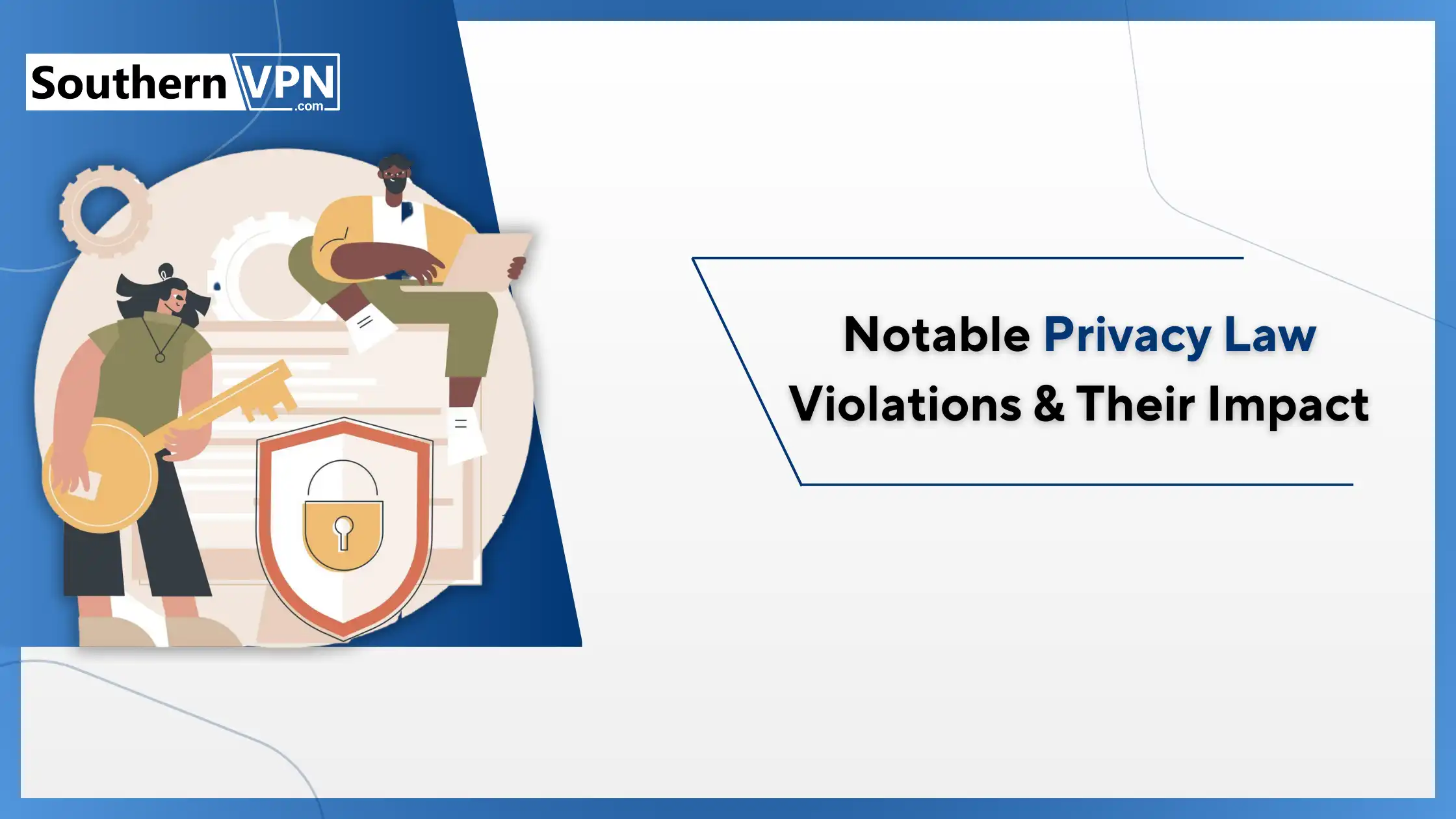
Notable privacy law violations include the Facebook-Cambridge Analytica scandal, where personal data was used for political advertising, and the Equifax data breach, which exposed sensitive information of 147 million people. These incidents highlight the importance of strong privacy protections and enforcement.
Facebook-Cambridge Analytica Scandal
One of the most important privacy breaches involved Facebook and Cambridge Analytica, where the personal data of the users and clients were used for political advertisements and thus it raised the privacy concerns of thousands of people
Equifax Data Breach
In the year 2017, Equifax, one of the most famous reporting companies, was claimed to have the data breached of approximately 147 million people. The breach underscored the importance of robust security measures and the severe consequences of failing to protect sensitive data.
GDPR Enforcement Actions:
Since its implementation, GDPR has led to several high-profile enforcement actions. For instance, Google was fined €50 million for lack of transparency and valid consent regarding ad personalization. Such actions demonstrate the EU’s commitment to upholding data privacy standards.
Problems in Ensuring the Online Privacy Laws
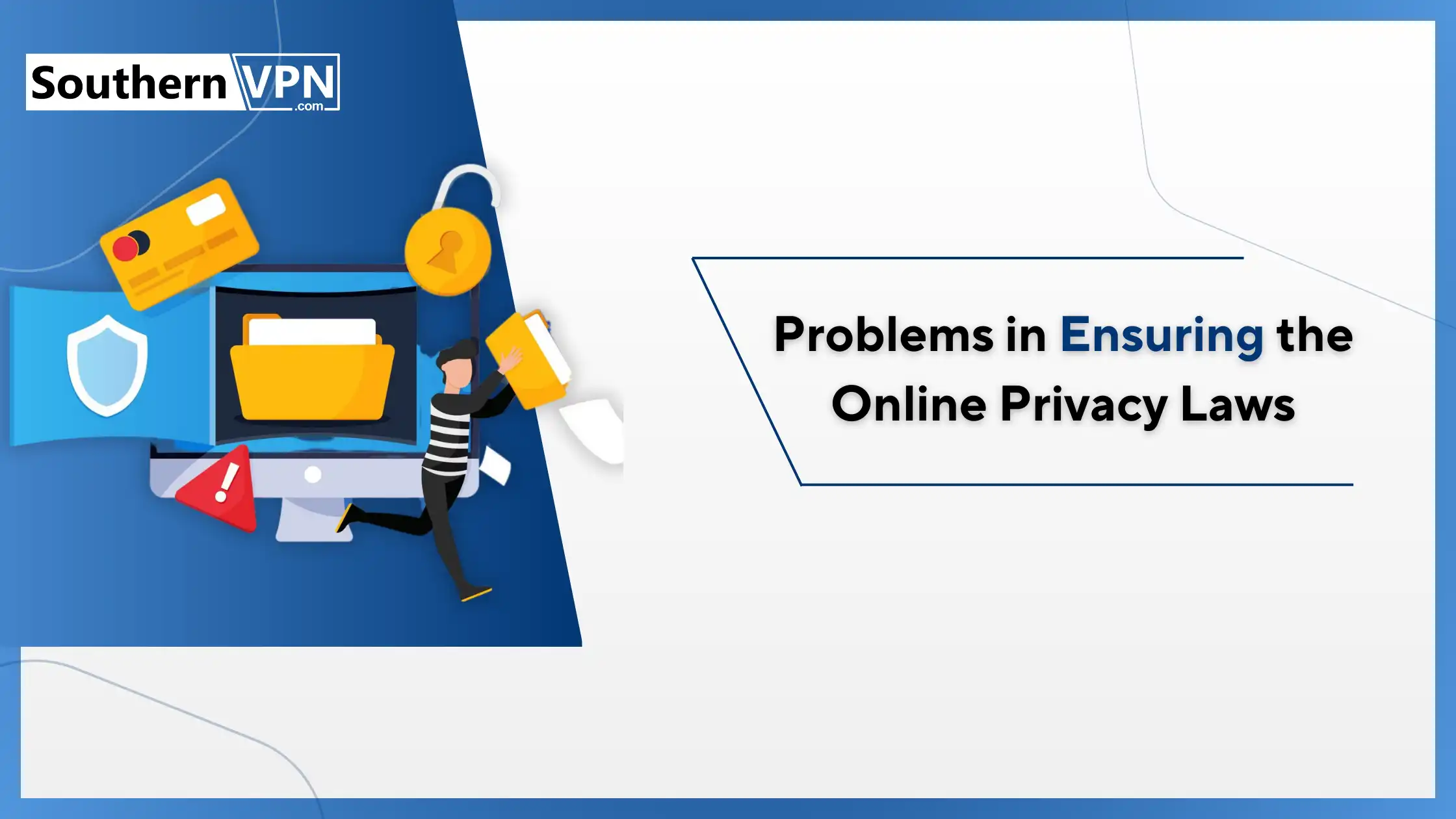

Uninterrupted, high-speed browsing, zero logs so your online activity is always private.
Over 7000 people checked out NordVPN in the last month
Despite of the fact that there are rules and regulations, there are alot of other things that become the hurdles in following and implementing the privacy laws
Rapid advancement
Rapid advancements cross the development of privacy regulations. The day to day rapid and fast technologies like artificial intelligence, the Internet of Things (IoT), enforce new challenges for privacy protection.
Varying Standards
Differences in privacy standards between regions can create conflicts. Different organisations operating and working in multiple jurisdictions must navigate a complex web of rules and regulations, leading to difficult challenges.
Governance Resources
Organisational bodies that often lack the resources and manpower to effectively enforce privacy laws. These can result in delayed responses to violations and also cause the loss of data and encryption.
User Unawareness
Many individuals are unaware of their privacy rights that they can have access to easily and how to exercise them. Education of rights and freedom to use the internet and how to make sure to use them is very necessary.
Surf Safe And Sound
In order to maintain a safe and sound environment. It is necessary to follow the following rules in maintaining the digital privacy laws as well
Handy Hint
Use Strong Passwords: Create unique, complex passwords for each account.
Enable Two-Factor Authentication: Add an extra layer of security.
Adjust Privacy Settings: Customise settings on social media and online services.
Be Cautious with Public Wi-Fi: Use a VPN to protect your data.
IP Address
When using the internet VPN can be easily installed and yet the IP address vanishes yet the data laws and privacy are maintained as well. It is thus very necessary to watch out the IP addresses so that you might not fall a prey to the following frauds
URL Check
Check for the URLs that are short and abbreviated as they are the most targeted to the malicious website. Different URLs are used and that are short and do not contain the full website name are often malicious and can cause harm to the data as well.
Cloud Threat
Cloud threats should be checked on a daily basis and should be reported to the law makers as soon as possible. As cloud is emerging and becoming the trend it also becomes a new threat as well.
Future Trends In Online Privacy Law
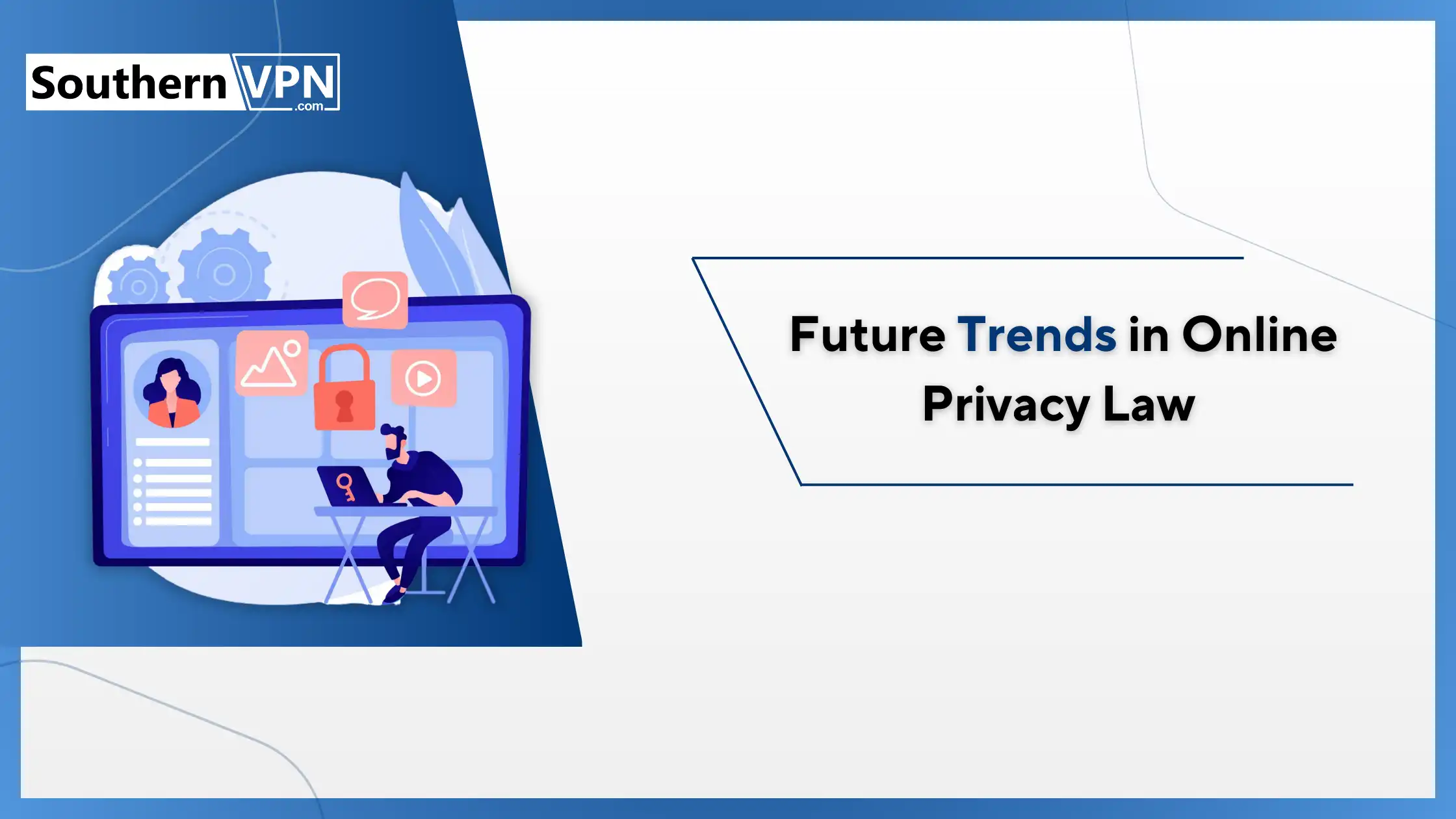
Following are the future trends that may include in the privacy law. Few are discussed below in the section in detail;
Greater Harmonisation of Privacy Laws Globally
As the internet transcends national borders, there’s a growing need for consistent privacy standards worldwide. This trend aims to reduce complexity for businesses operating internationally and ensure uniform protection for users regardless of their location.
Stringent Regulations
Data brokers collect and sell personal information, while ad tech companies use this data for targeted advertising. Increased scrutiny of these industries is likely, with potential Internet privacy regulations limiting data collection, sharing, and use for profiling. This could include stricter consent requirements and more transparency in data transactions.
Enhanced Protections for Biometric Data
Biometric data (like fingerprints and facial recognition) and genetic information are uniquely sensitive and permanent. Future privacy laws are likely to provide special protections for this data, potentially including stricter consent requirements, limitations on use and sharing, and enhanced security measures to prevent breaches or misuse.
Final Analysis
Understanding the internet privacy laws ensures the safe browsing and educating oneself for the future is the need of the hour. In today’s world where everyone is using the internet and has access to everything, privacy is a major concern.
We wish to see more transparent browsing where privacy is ensured, violation of rules must have taken actions that are strict. So that we welcome the new generation into the safe browning era with laws that are promising.






